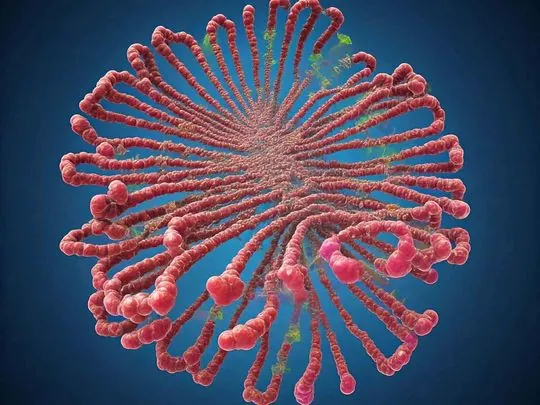
Unlocking the p53 Gene: A Breakthrough in Preventing Ulcerative Colitis from Turning Cancerous!
2024-10-27
Author: Ming
In a groundbreaking discovery from Berlin, researchers at the Max Delbrück Center, in collaboration with Charité – Universitätsmedizin Berlin, have revealed a pivotal role for the p53 gene in the progression of ulcerative colitis (UC), a chronic inflammatory bowel disease that can increase cancer risk. Their innovative study, recently published in Science Advances, raises hopes for novel therapies aimed at thwarting cancer advances in high-risk UC patients.
The team, led by Kimberly Hartl, an industrious graduate student at the Berlin Institute for Medical Systems Biology, meticulously examined the behavior of the p53 tumor suppressor gene in patients suffering from ulcerative colitis. Their research unveiled a startling fact: in UC, intestinal cells can become fixated in a relentless state of repair, a condition that provokes excessive cell proliferation and compromised functionality. This unwanted cycle is significantly linked to the malfunctioning of the p53 gene.
“Targeting these aberrant cells at the onset could prove vital in preventing cancer development among high-risk UC patients,” stated Professor Michael Sigal, a distinguished senior author of the study. His insights shed light on a potential game-changer in the battle against cancer originating from ulcerative colitis.
To uncover the underlying mechanisms at play, the researchers employed a cutting-edge 3D organoid model of the colon. They found that cells deficient in p53 exhibited increased glucose metabolism via glycolysis, a process that keeps them in a state of unceasing proliferation. Conversely, active p53 normalizes glucose metabolism, facilitating a return to healthy cell function.
Through their investigations, the researchers have identified specific compounds capable of selectively targeting and eliminating p53-deficient cells. This discovery heralds the dawn of promising therapeutic avenues aimed at eradicating precancerous cells and significantly reducing the risk of cancer development among UC patients.
As the team shifts focus toward practical applications, their goal is to establish straightforward methods for identifying dysfunctional p53 genes within colon tissues, paving the way for earlier detection and intervention strategies.
“By carefully eliminating these problematic cells, we stand at the brink of potentially slashing cancer risk for those suffering from ulcerative colitis,” emphasized Sigal, instilling hope within the medical community and patients alike.
This discovery not only shines a light on the molecular intricacies of ulcerative colitis but also fuels excitement about the future of targeted therapies. Will this research pave the way for a revolutionary new treatment protocol? Only time will tell, but the possibilities are certainly promising!

 Brasil (PT)
Brasil (PT)
 Canada (EN)
Canada (EN)
 Chile (ES)
Chile (ES)
 España (ES)
España (ES)
 France (FR)
France (FR)
 Hong Kong (EN)
Hong Kong (EN)
 Italia (IT)
Italia (IT)
 日本 (JA)
日本 (JA)
 Magyarország (HU)
Magyarország (HU)
 Norge (NO)
Norge (NO)
 Polska (PL)
Polska (PL)
 Schweiz (DE)
Schweiz (DE)
 Singapore (EN)
Singapore (EN)
 Sverige (SV)
Sverige (SV)
 Suomi (FI)
Suomi (FI)
 Türkiye (TR)
Türkiye (TR)